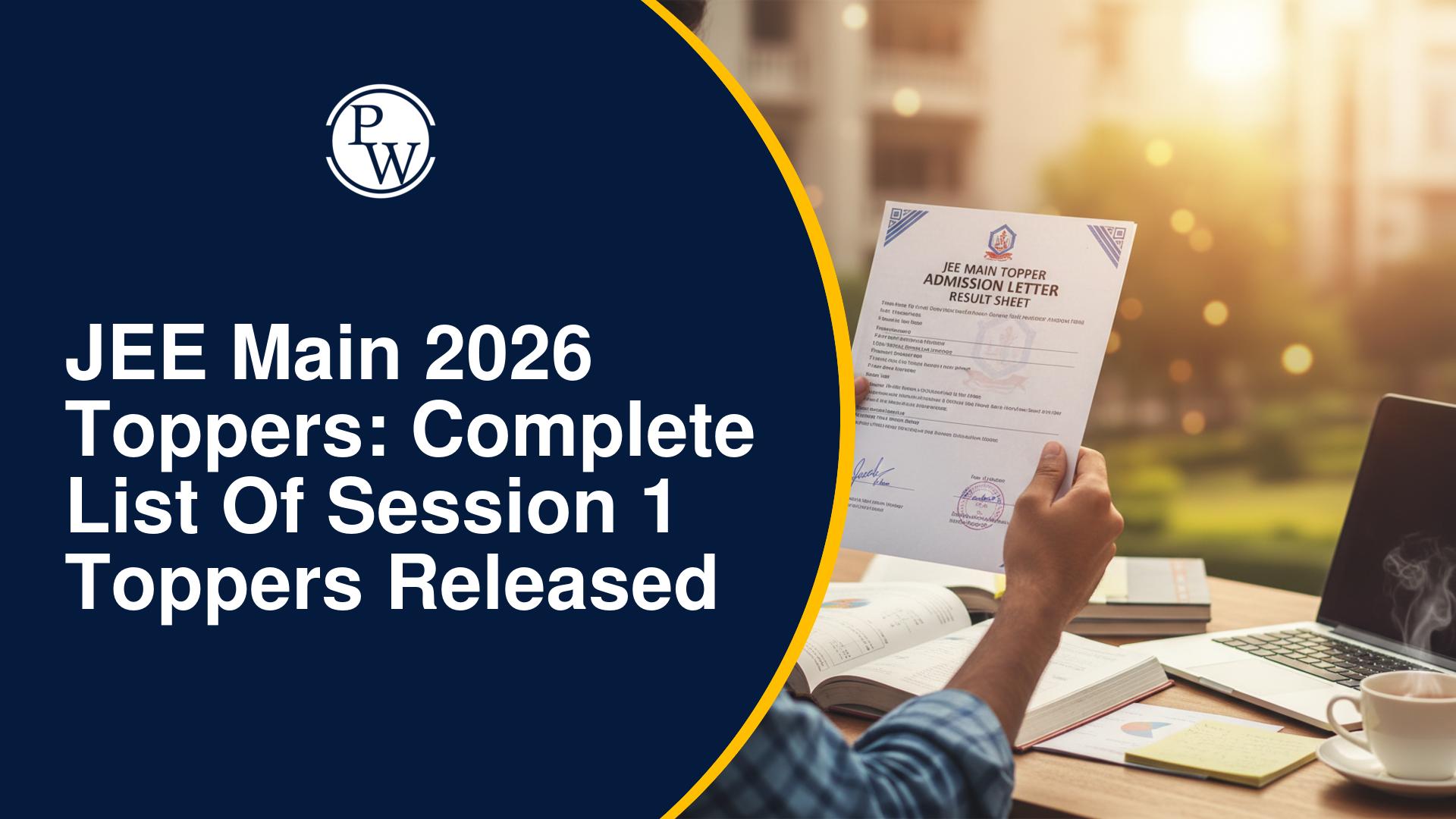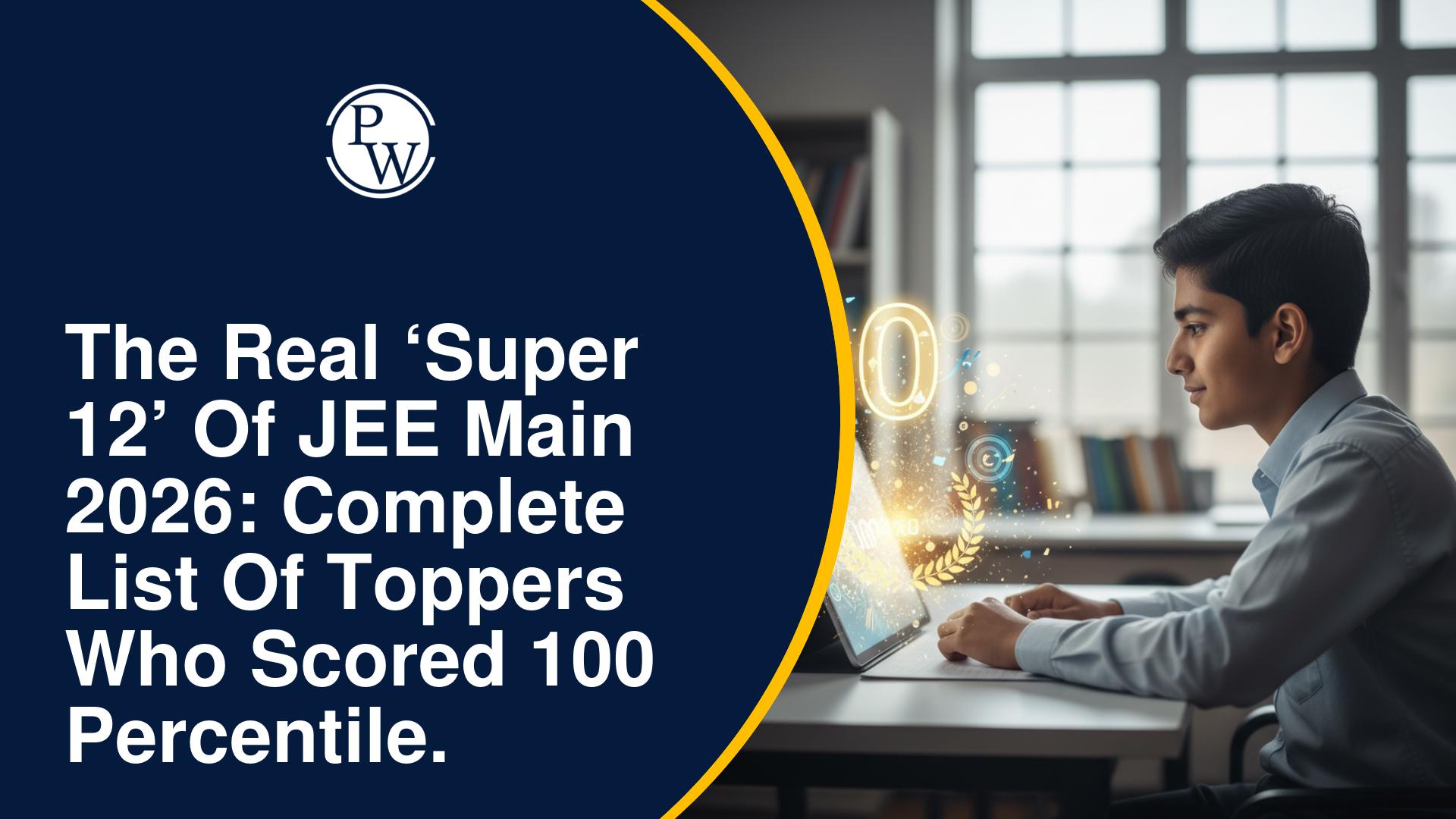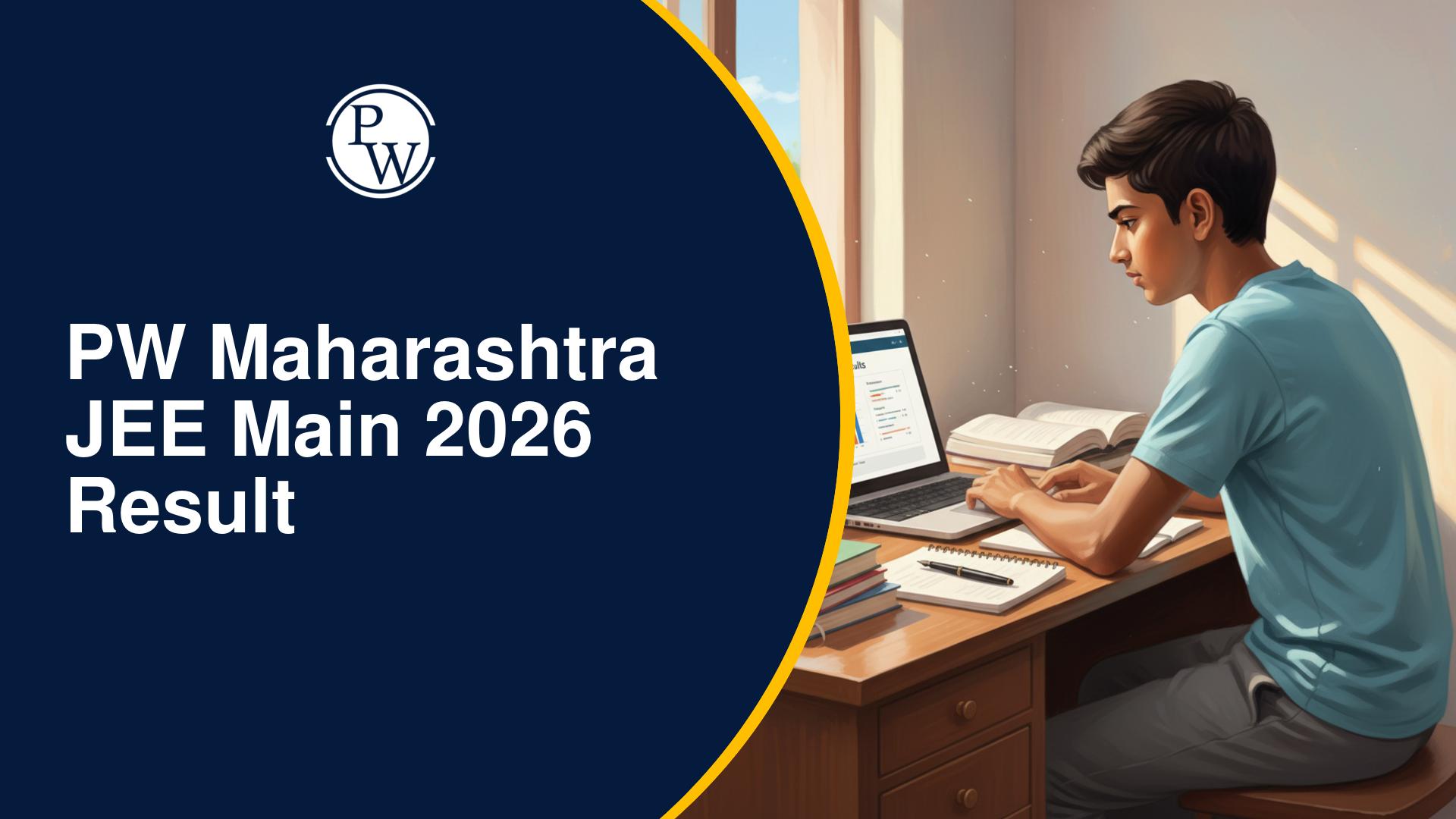
JEE Advanced 2026 Mathematics Syllabus : The organizing IIT is expected to retain the same JEE Advanced Chemistry syllabus for 2026 as the previous year. The syllabus is likely to be released in PDF format and will be available for download on the official website. JEE Advanced Maths Syllabus 2026 is expected to remain similar to the previous year, with no major changes anticipated. The syllabus includes a wide range of important topics such as Sets, Relations and Functions, Analytical Geometry, Differential Calculus, Integral Calculus, Vectors, Probability and Statistics, Algebra, and more. Candidates are advised to thoroughly go through and practice each topic to perform well in the exam. IITs are expected to conduct the JEE Advanced 2026 exam in May 2026.
Also Check : JEE Advanced Chemistry Syllabus
JEE Advanced Maths Syllabus 2026 Overview
JEE Advanced Maths Syllabus 2026 is extensive yet predictable, with no major changes expected from 2025. Candidates must give equal importance to all key areas: Algebra, Calculus, Coordinate Geometry, Trigonometry, and Vectors & 3D Geometry. With a well-planned strategy, the right study material, and consistent practice, mastering Mathematics for JEE Advanced 2026 is definitely achievable. Keep visiting the official website for any syllabus updates and ensure regular revision to stay ahead in the competition.
JEE Advanced Maths Syllabus PDF
Download JEE Advanced Math Syllabus PDF here. Stay updated with topics for successful JEE Advanced 2026 Math exam preparation
JEE Advanced Maths Syllabus PDF
JEE Advanced Maths Syllabus 2026
JEE Advanced Maths Syllabus 2026 for each topic is expected to remain unchanged and is updated in the table below. Candidates can check the topic-wise sub-topics included in JEE Advanced Maths Syllabus 2026 to plan their preparation effectively. The syllabus includes a variety of important topics such as Sets, Relations and Functions, Analytical Geometry, Differential Calculus, Integral Calculus, Vectors, and more. The table below provides a detailed overview of all the major topics and sub-topics expected in the JEE Advanced 2026 Mathematics syllabus.
|
JEE Advanced Maths Chapters |
Subtopics |
|
Sets, Relations and Functions |
Sets and their representations, different kinds of sets (empty, finite and infinite), algebra of sets, intersection, complement, difference and symmetric difference of sets and their algebraic properties, De-Morgan’s laws on union, intersection, difference (for finite number of sets) and practical problems based on them. Cartesian product of finite sets, ordered pair, relations, domain and codomain of relations, equivalence relation Function as a special case of relation, functions as mappings, domain, codomain, range of functions, invertible functions, even and odd functions, into, onto and one-to-one functions, special functions (polynomial, trigonometric, exponential, logarithmic, power, absolute value, greatest integer etc.), sum, difference, product and composition of functions. |
|
Algebra |
Algebra of complex numbers, addition, multiplication, conjugation, polar representation, properties of modulus and principal argument, triangle inequality, cube roots of unity, geometric interpretations. Statement of fundamental theorem of algebra, Quadratic equations with real coefficients, relations between roots and coefficients, formation of quadratic equations with given roots, symmetric functions of roots. Arithmetic and geometric progressions, arithmetic and geometric means, sums of finite arithmetic and geometric progressions, infinite geometric series, sum of the first n natural numbers, sums of squares and cubes of the first n natural numbers. Logarithms and their properties, permutations and combinations, binomial theorem for a positive integral index, properties of binomial coefficients |
|
Matrices |
Matrices as a rectangular array of real numbers, equality of matrices, addition, multiplication by a scalar and product of matrices, transpose of a matrix, elementary row and column transformations, determinant of a square matrix of order up to three, adjoint of a matrix, inverse of a square matrix of order up to three, properties of these matrix operations, diagonal, symmetric and skew-symmetric matrices and their properties, solutions of simultaneous linear equations in two or three variables. |
|
Probability and Statistics |
Random experiment, sample space, different types of events (impossible, simple, compound), addition and multiplication rules of probability, conditional probability, independence of events, total probability, Bayes Theorem, computation of probability of events using permutations and combinations. Measure of central tendency and dispersion, mean, median, mode, mean deviation, standard deviation and variance of grouped and ungrouped data, analysis of the frequency distribution with same mean but different variance, random variable, mean and variance of the random variable. |
|
Trigonometry |
Trigonometric functions, their periodicity and graphs, addition and subtraction formulae, formulae involving multiple and sub-multiple angles, general solution of trigonometric equations. Inverse trigonometric functions (principal value only) and their elementary properties. |
|
Analytical Geometry |
Two dimensions: Cartesian coordinates, distance between two points, section formulae, shift of origin. Equation of a straight line in various forms, angle between two lines, distance of a point from a line; Lines through the point of intersection of two given lines, equation of the bisector of the angle between two lines, concurrency of lines; Centroid, orthocentre, incentre and circumcentre of a triangle. Equation of a circle in various forms, equations of tangent, normal and chord. Parametric equations of a circle, intersection of a circle with a straight line or a circle, equation of a circle through the points of intersection of two circles and those of a circle and a straight line. Equations of a parabola, ellipse and hyperbola in standard form, their foci, directrices and eccentricity, parametric equations, equations of tangent and normal. Locus problems. |
|
Three dimensions: Distance between two points, direction cosines and direction ratios, equation of a straight line in space, skew lines, shortest distance between two lines, equation of a plane, distance of a point from a plane, angle between two lines, angle between two planes, angle between a line and the plane, coplanar lines. |
|
|
Differential Calculus |
Limit of a function at a real number, continuity of a function, limit and continuity of the sum, difference, product and quotient of two functions, L’Hospital rule of evaluation of limits of functions. Continuity of composite functions, intermediate value property of continuous functions. Derivative of a function, derivative of the sum, difference, product and quotient of two functions, chain rule, derivatives of polynomial, rational, trigonometric, inverse trigonometric, exponential and logarithmic functions. Tangents and normals, increasing and decreasing functions, derivatives of order two, maximum and minimum values of a function, Rolle’s theorem and Lagrange’s mean value theorem, geometric interpretation of the two theorems, derivatives up to order two of implicit functions, geometric interpretation of derivatives |
|
Integral Calculus |
Integration as the inverse process of differentiation, indefinite integrals of standard functions, definite integrals as the limit of sums, definite integral and their properties, fundamental theorem of integral calculus. Integration by parts, integration by the methods of substitution and partial fractions, application of definite integrals to the determination of areas bounded by simple curves. Formation of ordinary differential equations, solution of homogeneous differential equations of first order and first degree, separation of variables method, linear first order differential equations. |
|
Vectors |
Addition of vectors, scalar multiplication, dot and cross products, scalar and vector triple products, and their geometrical interpretations. |
Also Check : JEE Advanced Physics Syllabus
Difference Between JEE Advanced and JEE Main Mathematics Syllabus 2026
JEE Advanced 2026 Mathematics syllabus is expected to remain more compact and conceptually focused compared to the JEE Main 2026 Maths syllabus. While both exams test mathematical understanding, JEE Main includes some additional topics that are not part of the JEE Advanced syllabus.Below are the topics included in the JEE Main 2026 syllabus but not in the JEE Advanced 2026 syllabus:
-
Complex Numbers and Quadratic Equations
-
Determinants
-
Permutations and Combinations
-
Binomial Theorem and Its Simple Applications
-
Sequence and Series
-
Limit, Continuity and Differentiability
-
Integral Calculus (Some advanced parts)
Candidates should carefully study the official syllabus PDFs for both exams and plan their preparation accordingly. For JEE Advanced, more emphasis is placed on conceptual clarity, multi-topic integration, and problem-solving depth.
Also Check : JEE Advanced Syllabus
Study Materials For JEE Advanced Mathematics Syllabus
Candidates can check the study materials below for JEE Advanced Mathematics preparation designed by the faculty of Physics Wallah.
|
Study Materials for JEE Advanced Mathematics Syllabus |
|
46 Years Mathematics Chapterwise and Topicwise Solved Papers PYQs |
JEE Advanced Maths Syllabus 2026 FAQs
Is there any update or change in the Mathematics syllabus for JEE Advanced 2026?
What are the main topics included in the JEE Advanced Maths Syllabus 2026?
Is the JEE Advanced syllabus different from JEE Main?
Is the JEE Advanced Mathematics syllabus going to be released in PDF format?
What is the expected date for the JEE Advanced 2026 examination?










